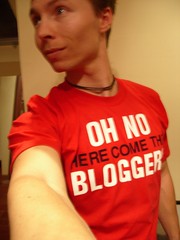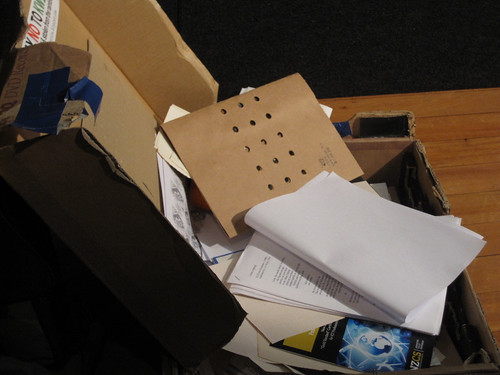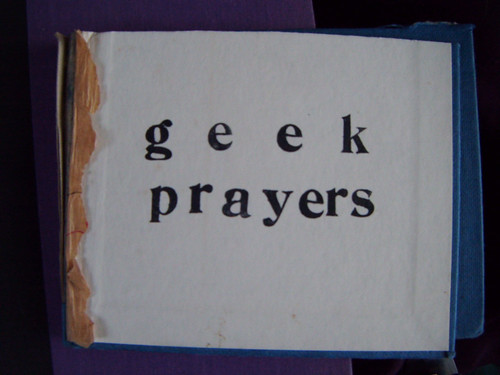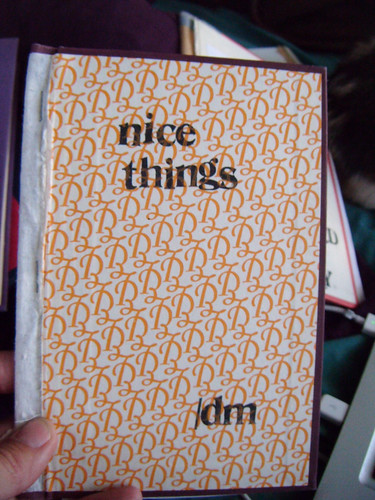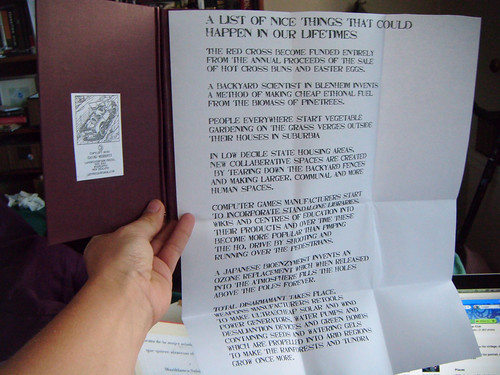New degree program in Entrepreneurial Journalism
CUNY has announced a new program for a masters’ degree in Entrepreneurial Journalism.
CUNY to offer nation’s first Master’s degree in entrepreneurial journalism:
Faculty members are developing courses for the new M.A. degree. The courses, which will be pilot-tested next spring, are expected to teach business and management skills, the new dynamics of news and media economics, and technology and project management, with apprenticeships at New York startups. Upon approval by the New York State Education Department, the first entrepreneurial degrees are expected to be awarded in the spring of 2012, to students currently enrolled in the CUNY Graduate School of Journalism.
The School also plans to open the courses to mid-career professional journalists who would earn a new Certificate in Entrepreneurial Journalism upon completion of the program.
I’m already imagining the syllabi for the courses I’d like to teach for this program or one like it. There’s nothing I love more than teaching and making people do homework. Read this! Do that! Produce material, which I will then judge with harsh, forthright, useful kindness and the implacable grading system of Google Analytics! Sounds like heaven.
Quite a lot of the people who could competently teach such courses already work in the industry, and speak at conferences where an aspiring digital journalist can pick up knowledge — knowledge you can also get by having a job, or getting a blog and taking it seriously. I wonder what it will cost people to get a higher education in Official Digital Journalist Stuff? Also, the snarky part of me thinks it’s hilarious that academic journalists, and the print journalism industry which is notoriously falling on its ass right now and complaining about it endlessly, are going to professor up and teach people how to do something that no one yet knows how to do. So while I do love the idea of this program on many levels, it still makes me giggle. I have a masters degree… IN BLOGGING.
Despite that, it’s inevitable and maybe not all bad that new fields will professionalize partly by academic fields being created. I have mixed feelings about academia and its claiming of legitimacy while perpetuating elitism and control. I do love research, discipline, editing, and learning in an academic environment. University education, from professorial oversight and associating with other students, taught me intellectual discipline that I wouldn’t have gotten as an autodidact. But the manufacturing of value, the arrogation of authority, and academia itself as an industry, made me feel a little sick. It’s worth doing but it’s certainly worth questioning.
I’ll be very interested to see what comes from the Entrepreneurial Journalism program! I hope for new experiments in local news production and distribution; and in ways that investigative journalists can make a living — maybe some of those will be successful.
This weekend I was looking at an interesting journalism project: CrowdVoice. CrowdVoice makes it easy for people to set up a news subject, whether it’s a specific incident like the Oakland protests of Oscar Grant’s murder or a more general subject like women’s rights in Iraq. There is a site tour that explains how to use and read the site, as well as how to submit content, whether it’s a link to an existing article or material a citizen journalist wants to upload, like a video, an interview, or a written report. My own preference in reading news is for a more linear interface that presents a lot of news at once, so I can read and scroll without having to click, but that could be possible by some clever combination of CrowdVoice with other tools that would use its feeds.

